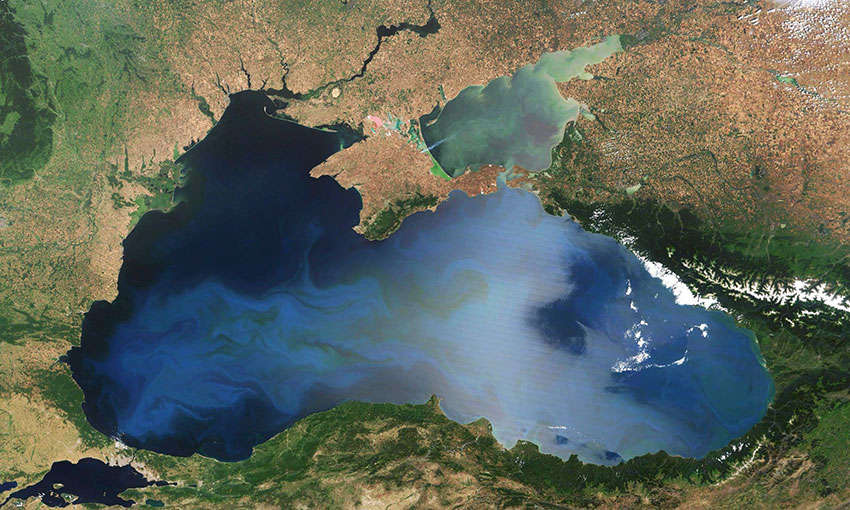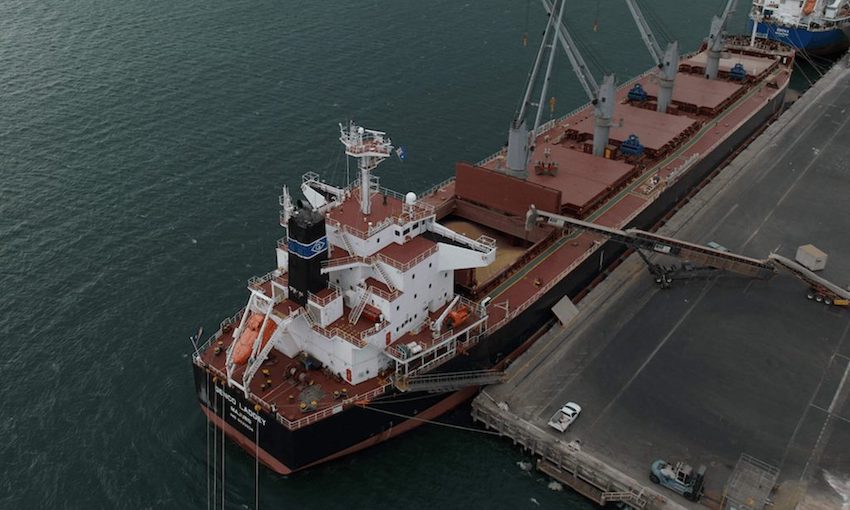MARITIME technology company Windward has identified a “worrisome” new trend in grain laundering, building off Russia’s alleged theft of Ukrainian grain.
Grain laundering, according to Windward, features a combination of dark activities and ship-to-ship meetings in the open sea.
The report contains information on five vessels engaging in dark activities and ship-to-ship operations in the Kerch Strait in June this year.
Windward said the activities appear to be part of a co-ordinated effort to launder grain allegedly stolen from Ukraine.
The company suggests that, between July 2020-June 2021 and July 2021-June 2022 there has been a 160% increase in dark activities in the Black Sea by bulk carriers Flying either Russian or Syrian flags.
Windward said so-called ship-to-ship meetings are the second component of the activities.
“Mostly Russian-flagged cargo vessels and other ships operating under flags of convenience appear to be meeting with one to four cargo and service vessels simultaneously in the Kerch Port offshore waiting area,” the company said in its report summary.
Data and mapping around the movement of allegedly smuggled grain in the region suggests the trade flows through both the Kerch Strait and Bosporus Strait. The grain is allegedly smuggled from Ukraine to Syria and Turkey.
“One of the most basic deceptive shipping practices used to conceal vessels’ location, operations at sea, and illicit activities is going ‘dark’,” Windward said.
“Going dark” involves vessels temporarily or permanently disabling the automatic identification system.
“Unlike instances where the vessel loses its signal due to lack of reception, bad weather, legitimate security considerations etcetera, going dark is an intentional choice to avoid transparency,” it said.
According to Windward’s data, the first area of operations on vessels’ voyages out of the area would be the Bosporus Strait. It indicates the number of area visits has doubled since February this year.
Windward’s platform flagged 170 events where cargo and bulk carrier vessels went dark in the Azov Sea and then resurfaced on their way out through the Bosporus Strait.
“One hundred and fifty-six of the events showed a similar pattern: vessels calling port with the allegedly smuggled grain while their AIS were turned on,” Windward said.
“Out of these visible port calls, 71% were in Turkey and 20% in Bulgaria.
“The remaining 14 events showcased a different pattern. Cargo and bulk carrier vessels went dark twice during their travels – once in the Azov Sea and again at their port of destination.”
Windward said that in 85% of the identified events, the destination for the alleged smuggled grain was Syria.
The company added that mostly Russian-flagged cargo vessels and other ships operating under flags of convenience have been meeting with cargo and service vessels simultaneously in the Kerch Port offshore waiting area.
“Some vessels stay in the area and only make trips up north and then back to the Kerch area, while others make the voyage outside of the disputed area to distribute the potentially stolen grain,” the company said.
Windward’s report outlines steps to help the maritime industry mitigate the risks of the current situation.
It said bad actors in the maritime domain have continued to evolve and look for new ways to conceal their illicit activities, and the scope of deceptive practices has “gone far beyond” the initial issue of crude tankers smuggling oil to avoid sanctions.
“In addition to a proliferation of dark activities in the Black Sea area since the Russian invasion of Ukraine, we are now witnessing co-ordinated cargo ship-to-ship meetings involving multiple ships in what looks like a clear attempt to evade restrictions and sanctions via smuggling,” Windward said.
“It is now clear to every shipping stakeholder dealing with trade that deceptive shipping practices and risk mitigation are relevant to all vessels and types of commodities – oil is no longer the main driver of the maritime economy.”





